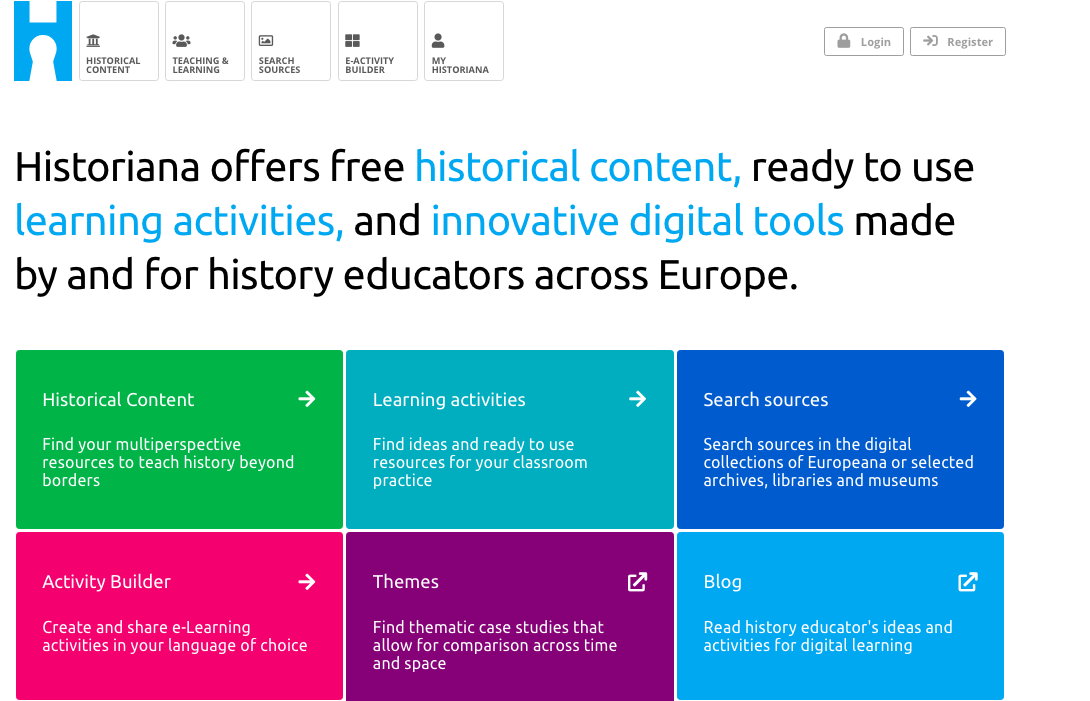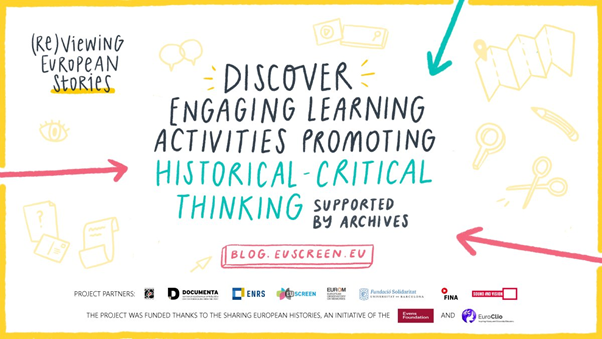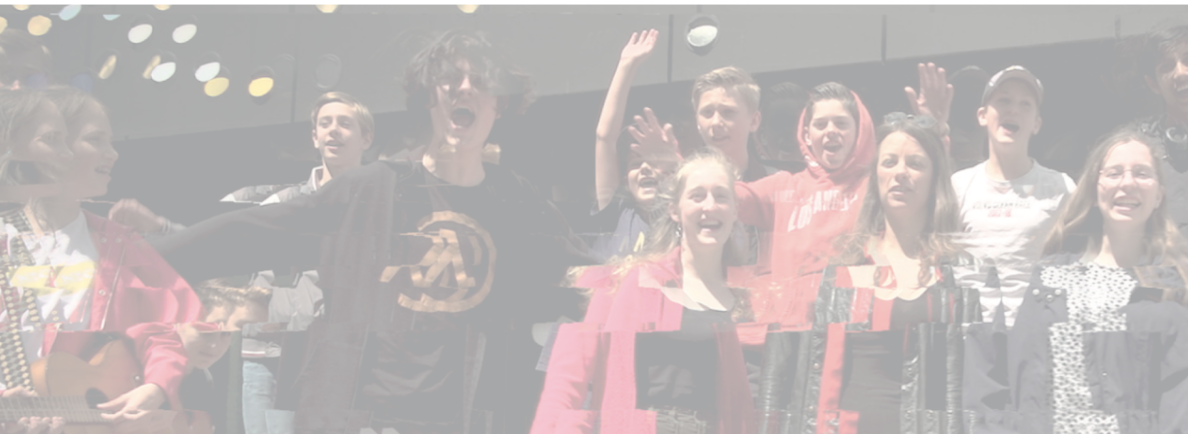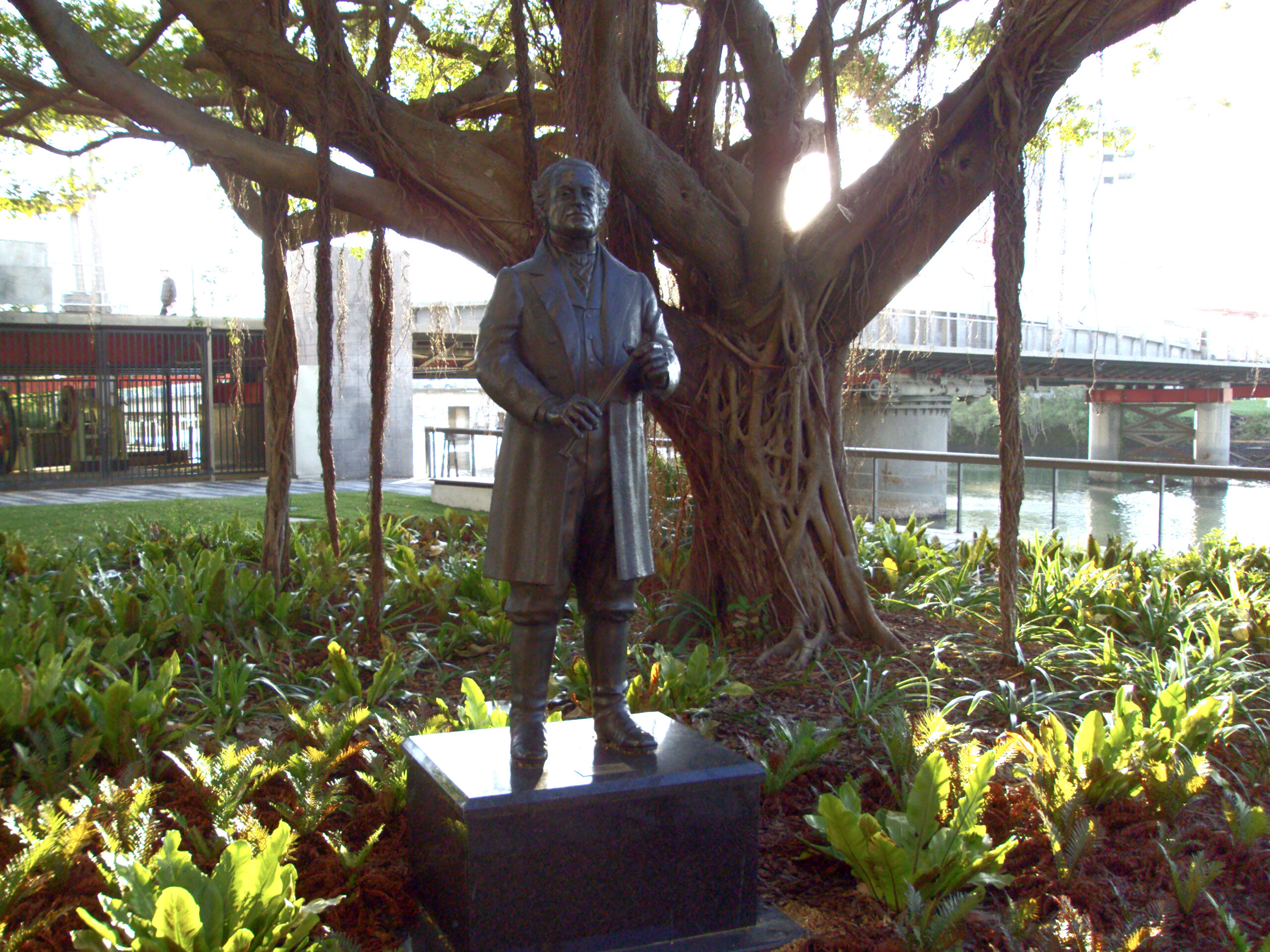Historiana, EuroClio’s online alternative to a European History textbook, is a constantly growing platform gathering hundredth of resources about various topics and time periods. This virtual learning environment offers a flexible and well-suited approach to an ever evolving subject. It provides free historical content, ready-to-use learning activities, and innovative digital tools developed by a team of history educators from across Europe and beyond. Historiana’s development is informed by the EuroClio manifesto and seeks to provide resources that are complex and multi-perspective to promote critical thinking.
There are over 50 source collections available on Historiana and more than 100 eLearning activities. Below you can find some of the favourite resources of our network.
Here is a non-exhaustive list of material that is particularly appreciated and used by our network.
Historical Content
Teaching and Learning Content
- The unit about Post-War Europe
- The Key moment on World War One: The War of Words
- The Key moment on World War Two: Key Moments in the War – The Timeline
- The Key moment on The Cold War: How Allies became enemies
- Source Collection on Visual Representation of Women at Work
- Source Collection on Contrasting Catholic and Protestant Art: Religious Art in the 16th and 17th centuries
- Source Collection on Railways and Connectivity
- Source Collection on The Visual Front: How official photographers portrayed World War One
- The Learning activity about Europe’s energy dependency
- The eLearning activity about propaganda and its personification.

Historiana Featured Resources
Historiana, EuroClio’s online alternative to a European History textbook, is [...]

Teaching and Learning about Life in 20th century Border Regions with Audiovisual Content

In Europe Schools: Documentary-Making and Online Exchange for European Schools

Contested Histories: Robert Towns’ Statue and his Blackbirding Legacy

Contested Histories: Legacy of Sir Stamford Raffles in Singapore





